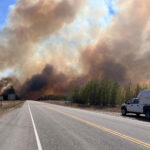Alberta in much better fiscal position than BC, Ontario or Quebec
While the price of U.S. crude benchmark WTI hovers above $30 per barrel, the price of Canadian benchmark Western Canadian Select has been nearer the $20 mark in recent weeks. The low prices have hit Canada’s producers hard, but Canadian Minister of Natural Resources Jim Carr remains positive about the industry’s ability to withstand the current environment.
“It’s stable. It’s got a long track record in the industry. I’m confident that, even within this transition period, we’ll do as well as any other country in making the necessary adjustments,” Carr said on CNBC.
“There are many leaders in Canada’s oil and gas sector who are being innovative in the ways in which we’re extracting energy from the ground, ways in which we’re seeking more reliably efficient and more environmentally sustainable ways of producing oil and gas,” he said.
“It’s a tough time for the industry. But we believe we’re resilient, that there are innovators and entrepreneurs across western Canada and the whole country that will adapt to the new reality.”
Alberta in a strong position to absorb the shock
Alberta is certainly taking the brunt of lower oil prices in Canada. The province, which has the third-largest oil reserves in the world, has lost 63,000 jobs, according to Carr.
The providence also faces two grim financial figures this year due to oil prices: a $10 billion deficit and a net financial position below zero. During a fiscal update, Finance Minister Joe Ceci said Alberta is looking at a $10 billion deficit from 2016-2017, and that this would push the province in to the red, reports CBC.
On their face, the numbers sound bleak, but University of Calgary economist Trevor Tombe said Alberta is still in a good position to weather the downturn.
“There’s no economic reason why a small positive net financial position, like we’re in today, going into a small negative one, like we’re likely to see at this time next year, would be a big concern,” he said.
Even with Alberta dipping into the red, it will still have a stronger economic position than other Canadian provinces. British Columbia’s net debt is 17% of GDP, while Ontario’s is around 40%, and Quebec’s at 50%, according to a recent RBC Economics report.
“Alberta is in a really strong position to absorb this negative shock that it’s seeing,” Tombe said. “Its borrowing capacity is just enormous because of the good financial position it’s in.”
The real issue, according to Tombe, is the possibility of large deficits over a long period of time. With oil prices expected to stay lower for longer, Alberta runs the risk of losing the strong position it currently has without some sort of adjustment.
“Unless oil prices come back, we’re going to be looking at perpetually large deficits in Alberta,” Tombe said, adding the government needs to figure out “some sort of credible plan” to address the situation.
“So, not a knee-jerk, sudden cut or tax increase, but a gradual, responsible move out of deficit — even if oil prices don’t rise.”







